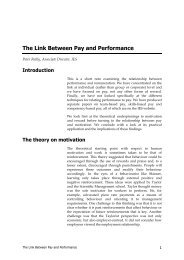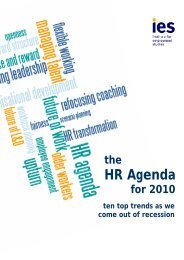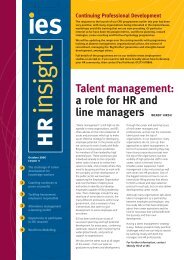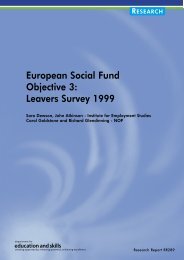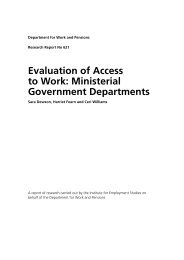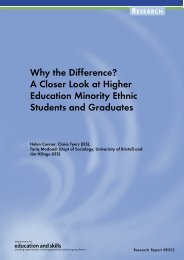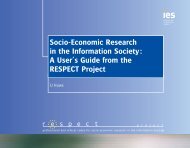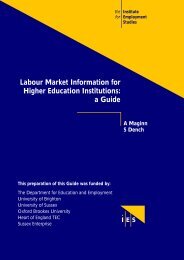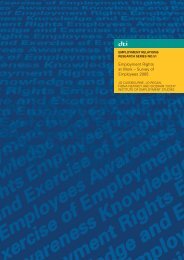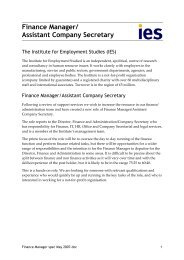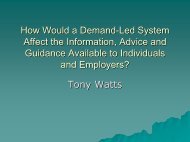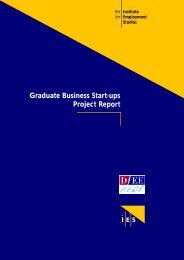Post-16 Transitions: a Longitudinal Study of Young People with ...
Post-16 Transitions: a Longitudinal Study of Young People with ...
Post-16 Transitions: a Longitudinal Study of Young People with ...
Create successful ePaper yourself
Turn your PDF publications into a flip-book with our unique Google optimized e-Paper software.
plans for their futures but for various reasons either do not do so at all,<br />
or do so only in the most limited way.<br />
Matthew is a case in point. He originally ‘had his heart set’ on finding<br />
work in the catering trade, but his lack <strong>of</strong> success has caused him to<br />
lower his sights. Asked whether he has thought about returning to<br />
college to improve his catering qualifications, he replies:<br />
“Don’t know, just I’ve been set back. I’ve been to so many catering<br />
interviews and all that and they’ve always knocked me back I’ve just -<br />
willing to do anything now, not just got my heart set on catering.”<br />
This is, however, not quite the realistic appraisal <strong>of</strong> his situation that it<br />
might seem, as his other comments about his future show:<br />
“Don’t wanna be living in the UK, wanna be out in some hot country. I<br />
did about three months ago have my heart set on moving back to<br />
where I was born, back to Cornwall, but there’s so many stories about<br />
that now. Hopefully I wanna be living in a hot country, or somewhere<br />
decent round here <strong>with</strong> a full-time job, my own place and everything…<br />
I actually wanna own my own pub don’t I, at the moment…”<br />
What is apparent through much <strong>of</strong> the case study evidence, is that<br />
planning for the future is a highly problematic notion.<br />
9.4 Reflections on transition<br />
Table 9.11: Most important person in post-<strong>16</strong> transition<br />
On reflection, young people are most likely to report that their<br />
parents and carers have been the most important people in<br />
helping them to make the transition from Year 11 to the present<br />
time and 64 per cent <strong>of</strong> all those surveyed reported this to be the<br />
case (Table 9.11). A further seven per cent <strong>of</strong> young people<br />
N = %<br />
Parents/carers 1,197 64<br />
Other school staff 122 6<br />
No-one in particular 115 6<br />
Friends/partner (boyfriend/girlfriend) 87 5<br />
Careers Service/Connexions personal adviser 47 2<br />
Careers Adviser at school/college 38 2<br />
Someone else in your family 35 2<br />
Other college staff 26 1<br />
SENCO at school 23 1<br />
Don’t know 69 3<br />
Other 109 6<br />
N = 1,874<br />
Note: All percentages are weighted percentages, unless otherwise stated<br />
Source: IES/MORI 2003<br />
<strong>Post</strong>-<strong>16</strong> <strong>Transitions</strong> <strong>of</strong> <strong>Young</strong> <strong>People</strong> <strong>with</strong> SEN: Wave 2 135



